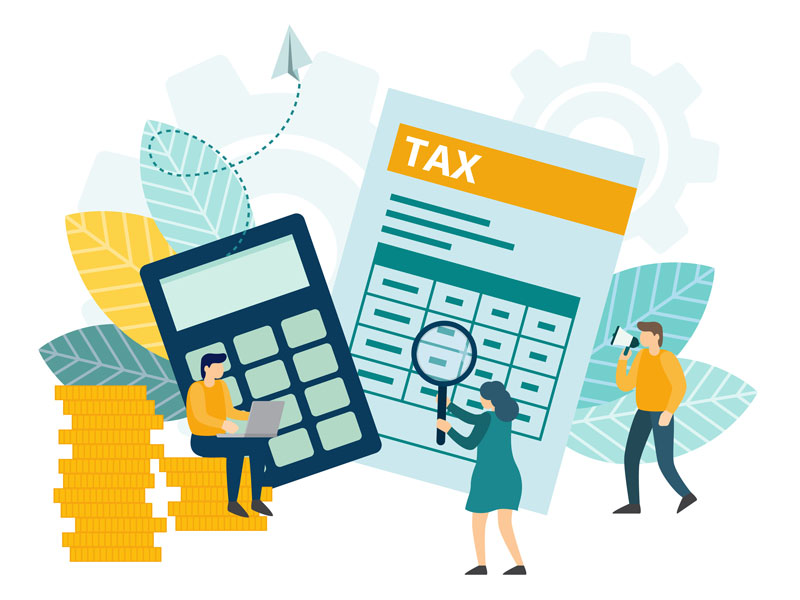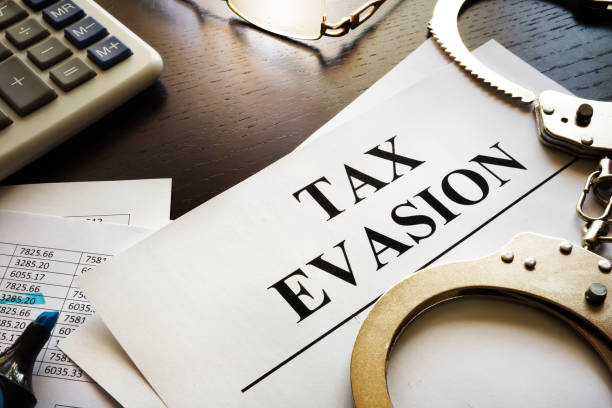Tax
Tax in Singapore
For all companies incorporated in Singapore, there are two primary tax responsibilities to which they may be liable and which they must register with the Singapore Inland Revenue Authority (IRAS). The Corporate Income Tax (CIT) and the Goods and Services Tax (GST) are the two. These tax preparation services can be done in-house by a full-time tax accountant or by a tax accountant who is outsourced to an accounting firm that provides such services for most SMEs in Singapore.
Because of the nature of tax reporting in Singapore, which is annual for Corporate Income Tax and quarterly for Goods and Services Tax, these tax preparation services are typically outsourced to an accounting firm that specializes in such services.
Technic-Inter Asia offers a pool of tax consultants who can provide the appropriate tax preparation and advice services to any Singapore-based firm. We can provide a streamlined way for conducting tax services that are both cost-effective and reliable because the majority of our clients are SMEs who do not have the operational expertise or financial means to do it in-house.

Personal income tax (PIT)
Singapore has one of the lowest personal income tax rates in the world. To calculate an individual’s Singapore income tax due, first, determine their tax residency and the amount of chargeable income, then apply the progressive resident tax rate. Individuals should be aware of the following aspects of Singapore income tax:
- Singapore has a progressive resident tax rate that starts at 0% and rises to 22% after you earn more than S$320,000.
- There are no capital gains or inheritance taxes.
- Individuals are only taxed on their earnings in Singapore. With a few exceptions, income received by persons while working abroad is not subject to taxation.
- The tax rules vary depending on the individual’s tax residency.
- Individuals have until April 15 to file their taxes. Income tax is calculated based on the previous year’s earnings.
Corporate Income Tax (CIT)
The Corporate Income Tax is the first and most important obligatory tax that all businesses must pay and register. The current corporate income tax rate is 17%, and it has been in place since the 2010 assessment year. From 2008 to 2009, the corporate income tax rate was 18 percent, and from 2005 to 2007, it was 20 percent. There are also tax rebates available to all businesses for taxable income. For more information, you can consult a tax accountant who specializes in such tax services, or you can check it out directly with IRAS.
Tax Investigation
A tax inquiry entails the examination of a taxpayer’s tax declaration who is accused of tax evasion. The Inland Revenue Authority of Singapore (IRAS) is in charge of it in Singapore.
Because of the severe penalties and the jail that can be imposed if one is found guilty of tax evasion or negligence, an IRAS tax investigation can be emotionally, psychologically, and financially difficult. Internal IRAS information or an informer usually sets it off. Forgiving solid information, an informer can be compensated handsomely by the IRAS (i.e. 15% of the tax recovered capped at $100,000), which makes it appealing for ex-business partners or unhappy workers to disclose any improper tax filing to the IRAS.
Unlike a desk audit or a field audit, where the taxpayer is given a warning, a tax inquiry normally occurs as a simultaneous visit to the taxpayer’s office and residence, the accountant’s office, and/or other pertinent locations. IRAS investigators or cops gather all pertinent papers during the raid, and computer forensic professionals “clone” the computer records to preserve the evidence for legal proceedings. For off-the-books monetary transactions, the cash in a taxpayer’s safe deposit may be tallied and documented.
In addition to the evidence acquired during the raid, the IRAS investigators will interview all parties involved (suppliers, customers, employees, etc.), record statements, gather more evidence from various sources. A taxpayer who has declared income or expenses correctly can be persecuted in court or settled out of court.


What to do when you are under tax investigation?
When the IRAS invaded your premises, it’s normal to be concerned. Whatever happens, please cooperate with the tax inspectors and do not impede them from completing their job, as this is a criminal offense. During the raid, tax investigators may ask questions or make statements. You can inform them right away if you are certain of the answers. You have the right to confirm with them afterward if you are unsure or unable to recall. You must be certain before you confirm because any inconsistencies in your response could come back to haunt you later.
Following an IRAS raid or visit, you should hire a tax professional who has handled tax investigation cases before, because such matters are complicated and require the correct support to effectively limit the negative repercussions of non-compliance and settle the issues with IRAS. You should not take the chance of hiring an unskilled tax attorney and jeopardizing your prospects of resolving the issue without going to court.
Goods and services tax (gst)
The Good and Services Tax (GST) quarterly submission is the second mandatory tax for GST-registered businesses. Companies can apply to be GST registered in one of two ways: either through required registration or voluntary registration. A tax consultant that is competent to prepare these types of tax services will be able to supply you with the tax advice you require. The basic criterion for mandatory GST registration is a yearly turnover of more than $1 million. Your tax advisor should be able to advise you on whether you need to be GST registered, when you should register, and how to correct late registration. Also for self-registration
GST Assisted Self-Help Kit (ASK) Review
The GST ASK review is a self-assessment compliance package designed by the Inland Revenue Authority of Singapore (“IRAS”) to help taxpayers check the accuracy of their GST submissions and identify historical GST problems early so that they can participate in the IRAS Voluntary Disclosure Programme (“VDP”).
The ASK consists of the following three sections:
Section 1 - GST Practices
The section will assist you in establishing internal processes to ensure overall GST compliance, including People, Record Keeping, Systems, and Internal Controls.
Essentially, this is an excel document containing a list of necessary (i.e. must have) and good practices (i.e good to have) requirements produced by the IRAS. The company will mark off the requirements as they are completed, and you will be given an assessment at the end of the day
To be judged to have put in place acceptable GST internal processes, businesses must obtain 100% for essential requirements can be simple as knowing when GST returns are due for filing to keeping records for the required five years.
In terms of the good to have requirements, the GST return preparer is anticipated to have a thorough awareness of areas where GST application rules are more complicated (e.g. difference between reimbursement and disbursement and significance of partial exemption and input tax apportionment).
Section 2 - Pre-filing Checklist
Before submitting your GST return, use the pre-filing checklist to double-check its quality. This is a self-assessment tool that assists GST-registered firms in determining the right GST treatment for their business transactions, ensuring the accuracy and completeness of their GST returns before they are submitted to the IRAS.
It’s a series of “Yes” or “No” questions that cover all of their GST return boxes.
“Did you make any purchases in foreign currency?” is one of the purchasing questions or examples. If you answer “Yes”, the checklist will tell you that GST paid in a foreign currency should be claimed using the SGD equivalent amount stated on the suppliers’ tax invoice and that if the SGD amount is not stated on the suppliers’ tax invoice, you should check with the supplier to determine the rate used.
It serves as a helpful reminder of the most typical GST reporting errors, so you can avoid them while preparing your GST return.
Section 3 - ASK Annual Review
The ASK Annual Review assists you in conduction regular reviews of previous GST returns to discover mistakes early. This is the mechanism that the IRAS has established for conducting a review of previous GST returns. The IRAS has mandatory checks that must be performed for each category of supply and purchases within the ASK methodology, as well as the number of samples to be tested under the ASK review.
Companies seeking for or renewing the following GST schemes must undergo an ASK review:
- Major Explorer Scheme (“MES”);
- Import GST Deferment Scheme (“IGDS”)
- Approved Contact Manufacturing and Trader (“ACMT”) Scheme
- Approved Marine Customer Scheme (“AMCS”)
- Approved Refiner and Consolidator Scheme (“ARCS”)
- Approved Third-Party Logistics (3PL) Company Scheme
We’ve seen the IRAS issue letters selected organizations (based on risk profile) urging them to do a self-examination using the ASK annual review methodology even though they are not on any GST scheme in recent years as a part of their compliance initiatives on major companies.
GST Assisted Compliance Assurance Program (ACAP)
The IRAS introduced the Goods and Services Tax (“GST”) Assisted Compliance Assurance Programme (“ACAP”) to encourage businesses to set up a robust GST control framework to ensure proper GST accounting on business transactions, in line with the growing focus on tax authorities on tax governance and risk management.
The ACAP’s goals can be split down into the following categories:
- Facilitate GST-registered business to set up a robust GST framework
- Encourage businesses to Undertake a holistic review of their system processes and capabilities
- Identify, assess and mitigate GST risks
- Ensure correct GST reporting on an ongoing bases
The IRAS will grant the business ACAP status when a GST ACAP evaluation of the organization’s Entity Level controls, Transaction Level controls, and GST Reporting Level controls is completed by a qualified ACAP reviewer.
The level and robustness of the internal controls assessed to determine the status granted, which can range from “ACAP Premium” (valid for 5 years) to “ACAP Merit” (valid for 3 years). The position also denotes a reduction in IRAS GST audits on the company.
Benefits of the GST ACAP
Saves cost
You may be eligible for a full waiver of fines for errors discovered in the past five years, as well as the ability to detect and recover GST overpaid/underclaimed to/from IRAS in the preceding five years.
Treatment with preference
Following the ACAP study, IRAS GST audits will most likely be scaled back. You may also benefit from expedited GST refunds, a specialized team from IRAS to assist you with any GST issues, and GST plan auto-renewal.
Better governance
The ACAP study could give Senior Management with a “snapshot” perspective of the company’s business processes and control systems, as well as current weaknesses, in addition to demonstrating a commitment to excellent tax governance and compliance. This could also serve as a benchmark norm for other jurisdictions where the Group does business
Contact us!
- +65 6561 0398 (Anthony)
- INSOLVENCY@e-management.com.sg
